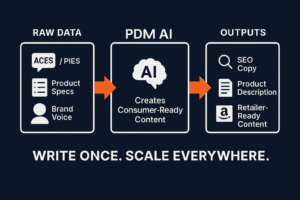Laws and regulations around the automotive industry have been a hot topic in 2024.
National attention is being paid to the automotive aftermarket thanks to aggressive legislation at the state and federal levels that requires the adoption of battery-powered and hybrid electric vehicles. For companies in the aftermarket that produce components for internal combustion engines or participate in motorsports, this shift towards non-gasoline-powered cars could impact their business.
In addition to laws around electric vehicles, issues such as the Right to Repair and federally mandated access to outdoor vehicle recreation areas are also shaping the industry in 2024.
As of May 2024, many of the issues listed here are still in flux, but we’ll be sure to provide any updates as they occur.
EPA Multi-Pollutant Emissions Standards for Model Years 2027 and Later Light Duty and Medium-Duty Vehicles: Final Rule
The U.S. Environmental Protection Agency (EPA) has finalized new emissions standards for model years 2027 and later, targeting light-duty and medium-duty vehicles. The standards aim to reduce the emission of greenhouse gasses, hydrocarbons, nitrogen oxides, and particulate matter by around 50% in the next eight years.
Set to be phased in from 2027 through 2032, these standards are designed to address climate change and improve air quality and public health. The regulation outlines technology-neutral, performance-based standards and predicts a substantial reduction in pollutants contributing to air quality degradation. Cumulative carbon dioxide reductions are projected at approximately 7.2 billion metric tons over the program’s life, emphasizing substantial health benefits nationwide, especially for communities near major roadways.
Shifting Aftermarket Landscape
Critics of the EPA’s new vehicle emissions standards raise several concerns, including increased manufacturing costs that may lead to higher vehicle prices for consumers, potentially placing a financial burden on both manufacturers, particularly smaller ones, and consumers.
To achieve these new standards, consumer adoption of zero-emissions vehicles will need to be dramatically increased nationwide. Since the automotive aftermarket is currently fueled by internal combustion engine (ICE) vehicles, this new EPA rule means big, big changes for the aftermarket industry. A gradual reduction in internal combustion vehicles means that components for ICE engines will all but be eliminated in the following decades, leaving hundreds of manufacturers without a market to sell into.
There is skepticism about the feasibility and reliability of the required technologies, such as electric and hybrid vehicles, and the market’s readiness for a surge in demand for these vehicles, coupled with concerns about the adequacy of infrastructure like charging stations. Opponents also argue that the regulatory burden might stifle innovation and that the environmental impact of new technologies, including the production and disposal of batteries, could negate some of the intended benefits.
A new automotive aftermarket, driven by innovation
As with all large policy changes, there are proponents of the legislation who offer a different perspective. This is mainly because the new EPA emissions standards will catalyze a wave of innovation across the automotive aftermarket as companies strive to meet the technological, service, and product demands these new regulations will spur.
Stringent emissions reduction requirements will require developing advanced technologies such as more efficient engines, hybrid systems, and fully electric drivetrains. Aftermarket companies will have opportunities to innovate by creating products that help older and existing vehicles meet or come closer to the new standards.
Additional development includes more efficient engines, hybrid systems, emission control products, and software that optimizes engine performance. Additionally, the rise in hybrid and electric vehicles will create opportunities for innovations in battery management and fast-charging solutions. Aftermarket companies can also expand into new services such as specialized diagnostic tools, training programs for technicians, and compliance certification services.
These stringent standards will encourage technological advancements and open new market segments focused on sustainability and efficiency.
H.R.906 – REPAIR Act
According to the Auto Care Association, 84% of independent repair shops view vehicle data access as a barrier to their business’s future.
Traditionally, OBD-2 ports provided both vehicle owners and technicians with the data necessary for maintenance and repair tasks. However, in the modern digital era, vehicle data is increasingly transmitted wirelessly, accessible primarily to the vehicle manufacturers themselves. As of 2021, half of all cars are equipped with these connected capabilities, and it is projected that by 2030, approximately 95% of new vehicles sold worldwide will feature this type of connectivity, according to McKinsey.
Wireless data transmission, often called telematics, enables vehicles to be diagnosed and sometimes repaired remotely without needing to visit a repair shop. While this capability could offer numerous advantages to car owners, as it stands, the data is exclusively sent to the vehicle manufacturers. These manufacturers then act as gatekeepers, controlling who gets access to the data and at what cost.
To change this dynamic, the Auto Care Association, the organization behind ACES and PIES data, authored the Right to Equitable and Professional Auto Industry Repair Act (REPAIR), which mandates the following:
- Vehicle manufacturers provide owners with direct, real-time access to in-vehicle data related to diagnostics, repair, service, and the calibration of parts and systems.
- Prohibit manufacturers from restricting an owner’s access to such data or impairing aftermarket manufacturers from producing compatible parts.
- Stipulate that manufacturers cannot enforce the use of specific brands for parts, tools, or equipment for repairs outside of recalls and warranties.
- Requires the National Highway Traffic Safety Administration to set standards for accessing vehicle data via a standardized platform
- Requires the Federal Trade Commission to form an advisory committee to oversee the act’s implementation and evaluate barriers to vehicle repair and data control.
- Empower the FTC to enforce these stipulations, ensuring owners and independent repair facilities can maintain and repair vehicles without undue restrictions.
Implementing the REPAIR Act will bolster the aftermarket industry because consumers can repair their vehicles at independent shops that purchase aftermarket parts instead of OEM parts from the manufacturers themselves. This legislation is a win for consumers and independent repair shops in the United States.
Expanding Public Lands Outdoor Recreation Experiences (EXPLORE) Act
In a big win for outdoor enthusiasts and the off-road industry, the House of Representatives passed the bi-partisan EXPLORE Act in April 2024.
The EXPLORE Act is a comprehensive bill designed to enhance outdoor enthusiasts’ experiences and increase accessibility to America’s public lands and waters. It enjoys the backing of over 100 outdoor organizations, representing a range of activities, including hunting, fishing, off-roading, horseback riding, boating, camping, and rock climbing.
The act aims to improve access to public lands and waters by implementing the following changes:
- Directs the Forest Service and BLM to create more designated areas for off-road recreation on public lands.
- Enhance visitor experiences through technology upgrades such as better broadband connectivity and digital recreation passes.
- Simplify the permitting process while lowering fees for small businesses reliant on public land access.
- Protect rock climbing areas, establish new long-distance bike trails, renovate campgrounds, and upgrade infrastructure.
- Supports surrounding communities by alleviating housing shortages and upgrading infrastructure.
- Enhances access for military service members, veterans, individuals with disabilities, and children.
Research shows that the off-road space is set to grow in the coming years, and this bill provides the basis for more people to recreate in the outdoors and take advantage of off-road technology that makes the journey more enjoyable.
Supporting the automotive aftermarket
Change in the automotive industry is inevitable, but PDM Automotive is the rock-solid support you need to grow your business.
Book a demo with PDM Automotive today and discover how our cutting-edge Product Information Management system can enhance your efficiency, compliance, and market reach with tailored solutions that propel your aftermarket business ahead of the competition.
More Resources
Elevate Your Brand in the Automotive Aftermarket With These Content Management Strategies



